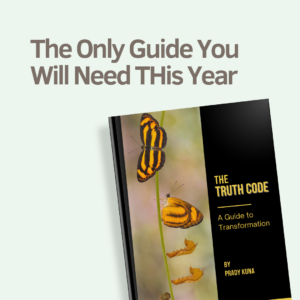Understanding the Unsettling Nature of Feeling Lost
Feeling lost is often characterized by a profound sense of disorientation and discomfort. It can manifest in various forms, whether through a lack of direction in life, uncertainty about one’s true self, or an overwhelming feeling of disconnect from one’s own goals and values. This experience is not merely a sign of confusion; it is a complex emotional state that can have significant psychological impacts. The truth code lies in recognizing that this unsettling sensation can catalyze personal growth and transformation.
Psychologically, feeling lost can evoke a spectrum of emotions, including anxiety, frustration, and sadness. Individuals may find themselves grappling with self-doubt and questioning their decisions, which can lead to a deeper introspection about their true self. This internal conflict often stems from the limitations we impose on ourselves. To transcend these limiting beliefs, it becomes essential to embrace the discomfort that feeling lost brings. Such feelings may serve as a prompt to reevaluate life choices and encourage individuals to seek new paths that resonate more closely with their authentic selves.
Moreover, while the unsettling nature of feeling lost can be challenging to navigate, it can also serve as a powerful motivator for change. It compels individuals to step outside their comfort zones, confront their fears, and seek personal clarity. The journey of feeling lost may feel isolating, yet it can open doors to new opportunities and experiences that contribute to our growth. By embracing this uncertainty, individuals can gradually uncover the deeper aspects of their identity and learn to accept the fluid nature of life itself. Recognizing the discomfort associated with feeling lost is thus essential for fostering resilience and personal development.
The Catalyst for Personal Transformation
Feeling lost is often seen as a setback, but it can serve as a powerful catalyst for personal transformation. In moments of uncertainty, individuals are compelled to reassess their life choices, values, and deeply held beliefs. This disorientation can lead to breakthroughs in self-discovery and help unlock new paths to a more authentic, fulfilling existence. When we embrace feeling lost, we open ourselves to a deeper awareness of our true desires and potential, initiating the journey toward profound personal change.
Rather than retreating into familiar patterns, embracing uncertainty invites introspection and helps us transcend the limitations of old belief systems. This transformative state allows individuals to break free from societal pressures, rediscover their passions, and realign with their true purpose. Feeling lost becomes a turning point, compelling us to reimagine our goals and live more intentionally. Ultimately, the experience of being lost is an invitation to embark on a deliberate journey of transformation—one that fosters adaptability, resilience, and growth.
Introducing the Truth Code Framework
In times when individuals find themselves feeling lost, the Truth Code framework offers a structured approach to navigate the complexities of uncertainty. This framework serves as a comprehensive guide, designed to help individuals connect with their true selves while transcending limiting beliefs that may hinder personal growth. By understanding and applying the principles of the Truth Code, one can embark on a transformative journey towards clarity and self-discovery.
The Truth Code is founded on several core principles, each aiming to evoke self-reflection and conscious awareness. The first principle encourages individuals to acknowledge and embrace their feelings of being lost. Recognizing these emotions creates a pathway to addressing them constructively, rather than ignoring or suppressing them. This step is crucial, as it allows for an honest analysis of one’s current state and sets the groundwork for meaningful change.
Following acknowledgment, the second principle focuses on identifying and challenging the limiting beliefs that arise in moments of uncertainty. These beliefs can often create a barrier to recognizing one’s true potential. By taking the initiative to confront and dismantle these mental obstacles, individuals can unlock a deeper understanding of themselves and their aspirations.
The third principle emphasizes the importance of setting intentions and creating actionable steps towards personal goals. This proactive approach helps individuals shift their focus from feeling lost to envisioning a purposeful direction, facilitating a sense of empowerment. By integrating these practices, the Truth Code framework acts as a beacon for those navigating through feelings of confusion.
Ultimately, the Truth Code framework provides an essential roadmap, equipping individuals with the tools necessary to uncover their authentic selves. As we explore the subsequent principles in this guide, we will delve deeper into these concepts, assisting those who feel lost in finding their way forward.
Transcend Limiting Beliefs: Old Assumptions Under the Microscope
When individuals encounter the disorienting sensation of feeling lost, it often acts as a catalyst for deep introspection. This experience compels people to examine and challenge their previously held assumptions and beliefs. Through the lens of the Truth Code, particularly the principle of transcendence, individuals are encouraged to scrutinize these old patterns, understanding that they may not serve their true self anymore. This scrutiny is crucial as it lays the foundation for personal growth and transformation.
The process begins with acknowledging and identifying the limiting beliefs that have been guiding one’s actions and thoughts. These beliefs, often formed from past experiences or societal expectations, can create a powerful narrative that affects decision-making and personal expression. Feeling lost may disrupt this narrative, prompting individuals to question, “Are these beliefs actually true?” This questioning is significant because it opens the door to alternative perspectives and possibilities.
Transcending these limiting beliefs involves actively re-evaluating their validity and relevance. For instance, someone may have embraced the idea that success is defined by external validation. A period of feeling lost can lead them to reassess this belief, encouraging a shift towards a more personal and intrinsic understanding of success. As individuals explore their true self, they realize that authenticity often resides in defining success on their own terms rather than adhering to imposed standards.
Consequently, this journey of self-examination not only challenges old assumptions but also fosters the development of a new and empowering mindset. As individuals liberate themselves from these constraints, they create space for growth and creativity, ultimately learning to navigate their life with greater intention and clarity. Embracing this opportunity enables them to redefine their path, emerging more aligned with their genuine aspirations and values.
Honor Your True Self: Authenticity Through Confusion
When individuals find themselves feeling lost, the journey towards self-discovery often becomes tangled in layers of confusion and uncertainty. It is during these challenging moments that the importance of honoring one’s true self emerges as a vital principle. Embracing authenticity amid chaos not only fosters self-acceptance but also serves as a transformative tool for personal growth. The truth code encourages individuals to transcend limiting beliefs that may inhibit their genuine expression and connection with their core identity.
Understanding and reconnecting with your true self begins with reflection. Taking time to ponder the aspects of your life that resonate deeply with your authentic self can illuminate pathways obscured by doubt. This process might involve confronting uncomfortable truths or re-evaluating priorities that may have been shaped by external expectations. It’s essential to distinguish between societal pressures and the resonance of one’s innate desires. Engaging in practices such as journaling or mindfulness can facilitate this journey, allowing an individual to sift through confusion and reconnect with their values and feelings.
Moreover, cultivating an environment that supports authenticity is crucial. Surrounding oneself with individuals who reflect honesty and openness can foster a sense of safety, encouraging deeper exploration of one’s true self. This supportive network can stand as a reminder that feeling lost is a part of the human experience, not a reflection of inadequacy. Ultimately, by honoring oneself and cultivating authenticity even amidst uncertainty, individuals not only discover peace in their journey but also unlock a pathway to personal empowerment that can erase the shadows of doubt.
Practical Tools: Mindfulness and Intentional Thinking
When individuals find themselves feeling lost, the experience can often breed anxiety and confusion. However, implementing practical tools such as mindfulness and intentional thinking can significantly mitigate these feelings while promoting personal growth. Mindfulness is the practice of staying present and fully engaging with the current moment. By focusing on the here and now, individuals can transcend limiting beliefs that might cloud their judgment or spur negative thought patterns. This conscious engagement allows for a clearer understanding of one’s true self and fosters a sense of clarity in uncertain situations.
One effective way to cultivate mindfulness is through meditation. Regular meditation practices help individuals recognize their thoughts without judgment, encouraging a healthier relationship with their emotions. It becomes easier to identify when feelings of being lost arise, allowing for conscious responses rather than reactive behavior. Additionally, simple breathing exercises can ground individuals, providing an instant sense of relief from overwhelming emotions. As clarity begins to surface, one can also employ intentional thinking.
Intentional thinking focuses on consciously guiding thoughts towards constructive outcomes. This approach involves actively questioning negative beliefs and reframing them into positive affirmations. By focusing on actionable steps rather than the uncertainties that lie ahead, one can create a roadmap for personal growth. Journaling can also aid in this process—writing down thoughts, aspirations, and challenges helps solidify the commitment to self-improvement and articulates the desire for clarity in emotional experiences. Both mindfulness and intentional thinking work synergistically, enabling individuals to navigate through feelings of uncertainty with resilience and insight.
Disrupting Negative Thinking Patterns
When individuals encounter the feeling of being lost, it often manifests as a cascade of negative thoughts and limiting beliefs. These thoughts can create a mental framework that inhibits personal growth and the ability to realize one’s true self. Acknowledging the role of negative thinking is the first step to reclaiming one’s mental landscape. Recognizing these patterns as they arise is critical; through mindfulness and self-awareness, individuals can begin to confront these thoughts instead of succumbing to them.
One effective strategy involves adopting a practice of self-reflection. Regularly setting aside time to examine one’s thoughts can reveal persistent negativity and limiting beliefs. Keeping a journal can facilitate this process, allowing individuals to articulate their feelings of being lost and investigate the roots of their thoughts. Documenting these reflections not only aids in understanding but also identifies recurrent themes, enabling individuals to challenge the validity of their negative beliefs systematically.
Moreover, reframing thoughts is a powerful technique that helps to disrupt negativity. Instead of viewing setbacks or feelings of uncertainty as failures, individuals can learn to interpret them as opportunities for growth. Utilizing cognitive behavioral strategies, one can consciously replace damaging thoughts with positive affirmations or empowering questions, essentially rewriting the narrative of their experience. This shift not only contributes to emotional resilience but also fosters an environment conducive to exploring the truth code behind individual experiences.
A key component to overcoming negative thinking lies in taking responsibility for one’s thoughts. By acknowledging that one has the power to influence their mental state, individuals can cultivate a proactive mindset. Engaging in daily affirmations or mindfulness practices can reinforce the belief that they hold the keys to personal growth, dismantling the barriers set by limiting thoughts. In this way, confronting feelings of being lost becomes a transformative journey towards discovering one’s true self.
Finding Clarity: The Road to Authentic Purpose
Feeling lost can often serve as a catalyst for profound personal growth and transformation. When individuals encounter this disorienting state, it can prompt a closer examination of their values, aspirations, and the very foundations of their existence. Within this context, embracing the principles of the Truth Code becomes instrumental in navigating the complexities of one’s inner landscape. By engaging with these principles, individuals can uncover the layers of their true self and align with their authentic purpose.
Self-reflection is the first step toward gaining clarity. Taking the time to explore one’s passions, motivations, and the aspects of life that bring joy can illuminate forgotten dreams and desires. This introspective process, initiated when one feels lost, unveils insights that may have been obscured by societal expectations or limiting beliefs. Utilizing tools such as journaling or meditation can further facilitate this reflective journey, guiding individuals toward recognizing patterns that resonate with their true self.
Transcending limiting beliefs is crucial during this quest for clarity. Often, these beliefs act as barriers that prevent individuals from exploring their potential. By utilizing the Truth Code principles, people can challenge these mental constraints, refocusing their thoughts on possibilities rather than limitations. This shift encourages a mindset geared toward growth, enabling individuals to embrace their unique paths even when the destination appears uncertain.
Ultimately, feeling lost is not merely an obstacle but rather an opportunity to reassess and realign one’s life with a more authentic purpose. The journey of self-discovery through the Truth Code principles empowers individuals to cast aside confusion in favor of clarity, leading to a more meaningful existence. By prioritizing this transformative process, one can navigate through feelings of disarray, ultimately emerging with a stronger sense of direction and purpose.
Transforming Feelings of Being Lost into Opportunities for Growth
Experiencing feelings of being lost can often seem daunting; however, such moments can serve as powerful catalysts for personal growth. When individuals confront uncertainty, they are faced with a unique opportunity to step back, reassess their circumstances, and take stock of their true self. Embracing these states of confusion can lead to the revelation of deeper insights about one’s values, passions, and desires, ultimately opening the door to transformation.
The Truth Code, representing an introspective framework designed to guide individuals through their journey, plays a vital role in this process. This code offers practical tools and philosophies that encourage one to find clarity amid chaos. By leveraging the Truth Code, individuals can cultivate the resilience needed to transcend limiting beliefs that may have previously obscured their path. The practice of reflection fosters a deeper understanding of one’s core motivations, allowing for the reimagining of life’s direction in a more fulfilling manner.
As individuals navigate their feelings of being lost, it is essential to recognize that this phase is not a hindrance but rather a crucial part of the journey toward self-realization. By actively engaging with these emotions rather than avoiding them, individuals can uncover essential lessons that encourage growth. Each experience of feeling lost can illuminate new pathways, challenging preconceived notions of success and happiness.
In fostering an environment of self-discovery and exploration, we open ourselves to the possibilities that lie beyond our current limitations. Acknowledging the discomfort that accompanies uncertainty can, in fact, propel us closer to understanding our true self. Hence, readers are encouraged to welcome their journeys, using the insights derived from their feelings of being lost as stepping stones toward personal evolution and fulfillment.





